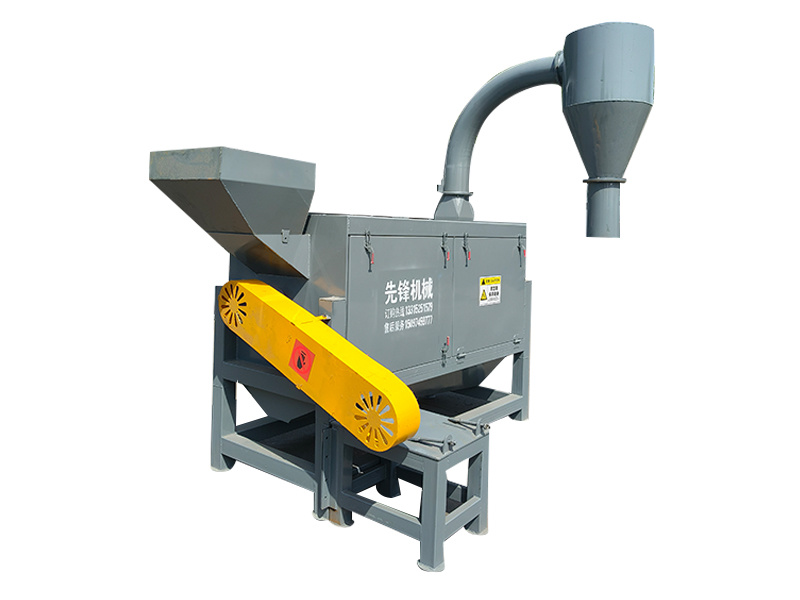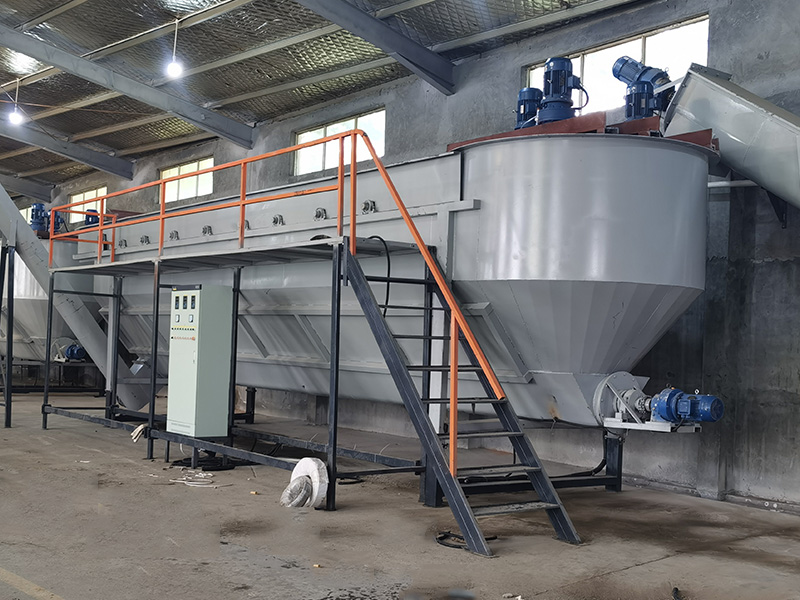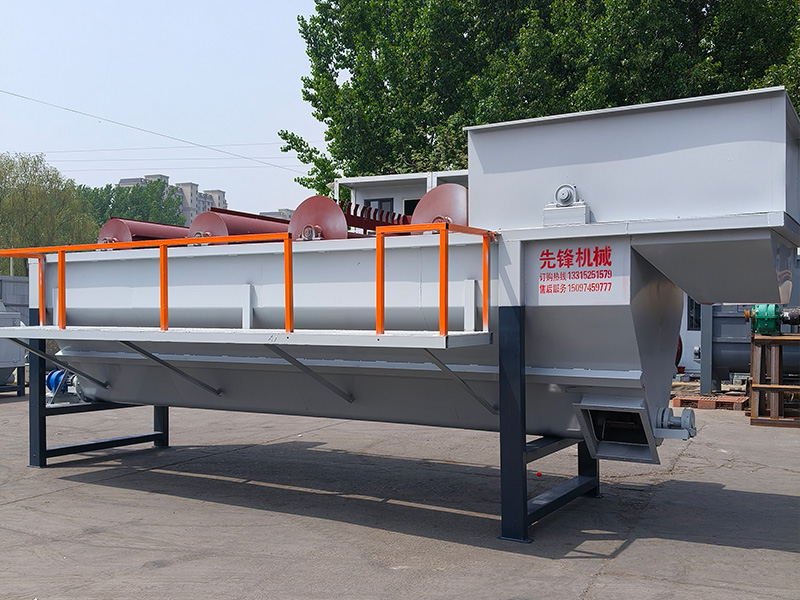How Customized Flotation Tanks Enhance Plastic Recycling Efficiency
How Customized Flotation Tanks Enhance Plastic Recycling Efficiency
Table of Contents
Introduction to Plastic Recycling and Flotation Technology
The Importance of Customized Flotation Tanks in Recycling
Fundamentals of the Flotation Process in Plastic Recycling
Design Features of Customized Flotation Tanks
Operational Efficiency Enhancements
Environmental Benefits of Custo
Jun 11,2025

How Customized Flotation Tanks Enhance Plastic Recycling Efficiency
Table of Contents
- Introduction to Plastic Recycling and Flotation Technology
- The Importance of Customized Flotation Tanks in Recycling
- Fundamentals of the Flotation Process in Plastic Recycling
- Design Features of Customized Flotation Tanks
- Operational Efficiency Enhancements
- Environmental Benefits of Customized Flotation Tanks
- Case Studies and Industry Applications
- Future Trends in Flotation Technology for Plastic Recycling
- Conclusion
- FAQs
Introduction to Plastic Recycling and Flotation Technology
Plastic waste management has become a pivotal issue in the global environmental landscape. With millions of tons of plastic entering landfills and oceans each year, innovative recycling methods are essential. Flotation technology has emerged as a vital solution for separating plastics from contaminants, improving recycling efficiency. Customized flotation tanks, tailored to specific recycling needs, play a crucial role in this transformation.
The Importance of Customized Flotation Tanks in Recycling
**Customization** in flotation tanks allows recycling facilities to address unique challenges presented by different types of plastic waste. Standard flotation systems may not effectively separate certain plastics or remove impurities. Customized solutions can enhance separation efficiency, reduce operational costs, and increase overall yield in recycling operations.
By analyzing the specific materials entering the recycling facility, manufacturers can design flotation tanks that optimize performance. For instance, different polymers may have varying densities and surface properties, necessitating tailored approaches for effective separation.
Fundamentals of the Flotation Process in Plastic Recycling
The flotation process involves introducing air bubbles into a mixture of water and plastic waste. Polymers with a lower density than water will attach to the bubbles and rise to the surface, allowing for easy removal. This method is particularly effective for separating plastics from heavier contaminants like metals and glass.
Understanding the **fundamentals of flotation** is crucial for designing effective customized systems. The process can be influenced by several factors, including:
- **Air Bubble Size**: Smaller bubbles may provide better attachment to particles but may be more challenging to generate.
- **Reagent Selection**: The right chemicals can improve the adhesion between plastics and bubbles, enhancing separation efficiency.
- **Operational Parameters**: Adjustments to parameters such as pH, temperature, and mixing intensity can drastically affect the flotation outcome.
Design Features of Customized Flotation Tanks
Customized flotation tanks incorporate several design features that enhance their effectiveness. Key elements include:
1. Adjustable Chamber Geometry
The shape and size of the flotation tank can be customized to accommodate different throughput requirements. Larger tanks may be suitable for high-volume operations, while smaller units can serve niche markets.
2. Variable Air Injection Systems
Incorporating adjustable air injection systems allows operators to modify bubble size and injection rates based on the materials processed.
3. Enhanced Scraper Mechanisms
Customized scraper systems efficiently remove floated materials, minimizing downtime and maximizing throughput.
4. Modular Designs for Scalability
Modular flotation tanks enable facilities to scale operations based on demand, providing flexibility in processing capabilities.
5. Advanced Control Systems
Integration of smart control systems allows for real-time monitoring and adjustments, ensuring optimal performance under varying conditions.
Operational Efficiency Enhancements
Custom-designed flotation tanks can lead to significant operational efficiency improvements. Benefits include:
1. Increased Recovery Rates
Tailored flotation systems can enhance recovery rates by optimizing the separation of valuable plastics from contaminants. This leads to higher-quality recycled materials.
2. Reduced Energy Consumption
By optimizing air injection and mixing processes, customized tanks can lower energy costs, contributing to more sustainable operations.
3. Decreased Maintenance Requirements
Customized designs can reduce wear and tear on components, leading to lower maintenance costs and reduced downtime.
4. Improved Process Control
Real-time data collection and monitoring allow operators to fine-tune processes, ensuring consistent results and minimizing variations in output quality.
Environmental Benefits of Customized Flotation Tanks
The adoption of customized flotation tanks not only enhances recycling efficiency but also brings substantial environmental advantages:
1. Lower Carbon Footprint
By improving the recycling process, customized flotation tanks help reduce the carbon footprint associated with plastic production and waste management.
2. Increased Plastic Recovery
Higher recovery rates mean less plastic waste ends up in landfills or oceans, contributing to a cleaner environment.
3. Resource Conservation
Recycling plastics conserves natural resources and reduces the need for virgin materials, promoting a more sustainable circular economy.
4. Reduced Pollution
Efficient separation of plastics from contaminants reduces the potential for environmental pollution, safeguarding ecosystems.
Case Studies and Industry Applications
Several industries have successfully adopted customized flotation tanks to enhance their recycling processes:
1. PET Recycling Industry
The polyethylene terephthalate (PET) industry has leveraged customized flotation tanks to improve the separation of PET from other contaminants, resulting in higher-quality rPET (recycled PET) products.
2. Electronic Waste Recycling
In the electronic waste sector, customized flotation systems help extract high-value plastics from complex waste streams, improving recovery rates significantly.
3. Automotive Industry
Automotive manufacturers are increasingly turning to flotation technology for recycling plastics from end-of-life vehicles, facilitating the recovery of valuable materials.
Future Trends in Flotation Technology for Plastic Recycling
As the recycling landscape evolves, several trends are emerging in flotation technology:
1. Automation and AI Integration
Incorporating artificial intelligence and automation into flotation systems can enhance efficiency and predictive maintenance, reducing costs.
2. Innovations in Reagent Technology
Developments in environmentally friendly reagents will further enhance flotation processes while minimizing ecological impacts.
3. Increased Demand for Circular Economy Solutions
The push for circular economy solutions will drive further innovations in flotation technology, compelling manufacturers to develop more efficient systems.
Conclusion
Customized flotation tanks represent a significant advancement in the plastic recycling industry. By tailoring designs to meet specific challenges, we can enhance operational efficiencies, improve recovery rates, and contribute to a more sustainable future. Embracing these innovations not only helps tackle the pressing issue of plastic waste but also supports the broader movement toward a circular economy. The time for investing in customized flotation technology is now, as it holds the key to unlocking greater efficiency and sustainability in plastic recycling.
FAQs
1. What are flotation tanks used for in plastic recycling?
Flotation tanks are primarily used to separate plastics from contaminants by utilizing air bubbles to lift plastics to the surface for collection.
2. How does customization improve flotation tank efficiency?
Customization allows flotation tanks to be tailored to specific materials and operational needs, resulting in better separation and increased recovery rates.
3. What types of plastics can be processed using flotation technology?
Flotation technology is effective for various plastics, including PET, PVC, and polystyrene, among others.
4. What are the environmental benefits of using flotation tanks for recycling?
Flotation tanks help reduce plastic waste in landfills, lower carbon footprints, and promote resource conservation by increasing recycling rates.
5. Can flotation tanks be used for other types of recycling besides plastics?
Yes, flotation technology is also applicable in the recycling of other materials, including metals and paper products, demonstrating its versatility in waste management.
TAG:
Contact Us
E-mail :
Phone/WhatsApp:
Address:
Shunping, Baoding City, Hebei Province









